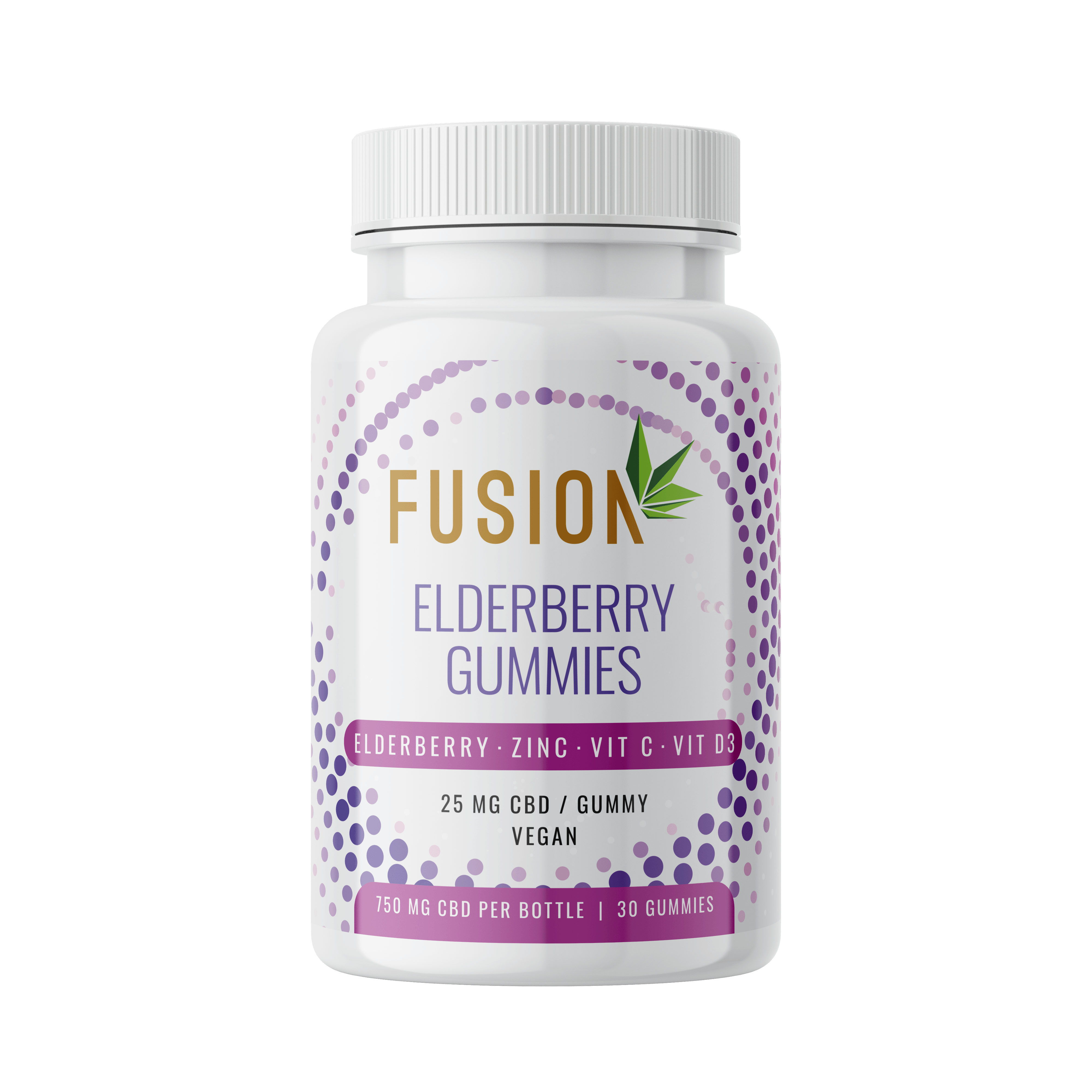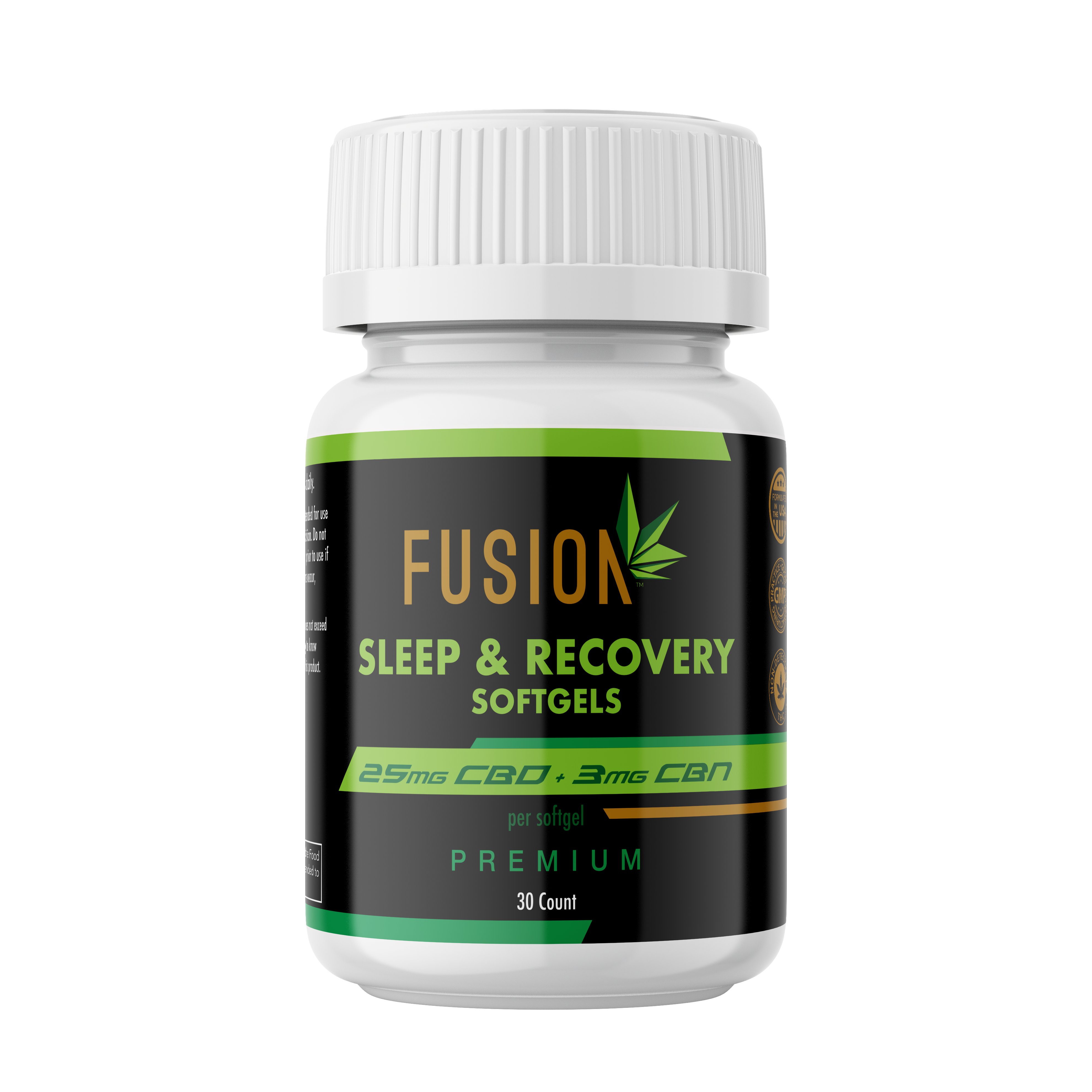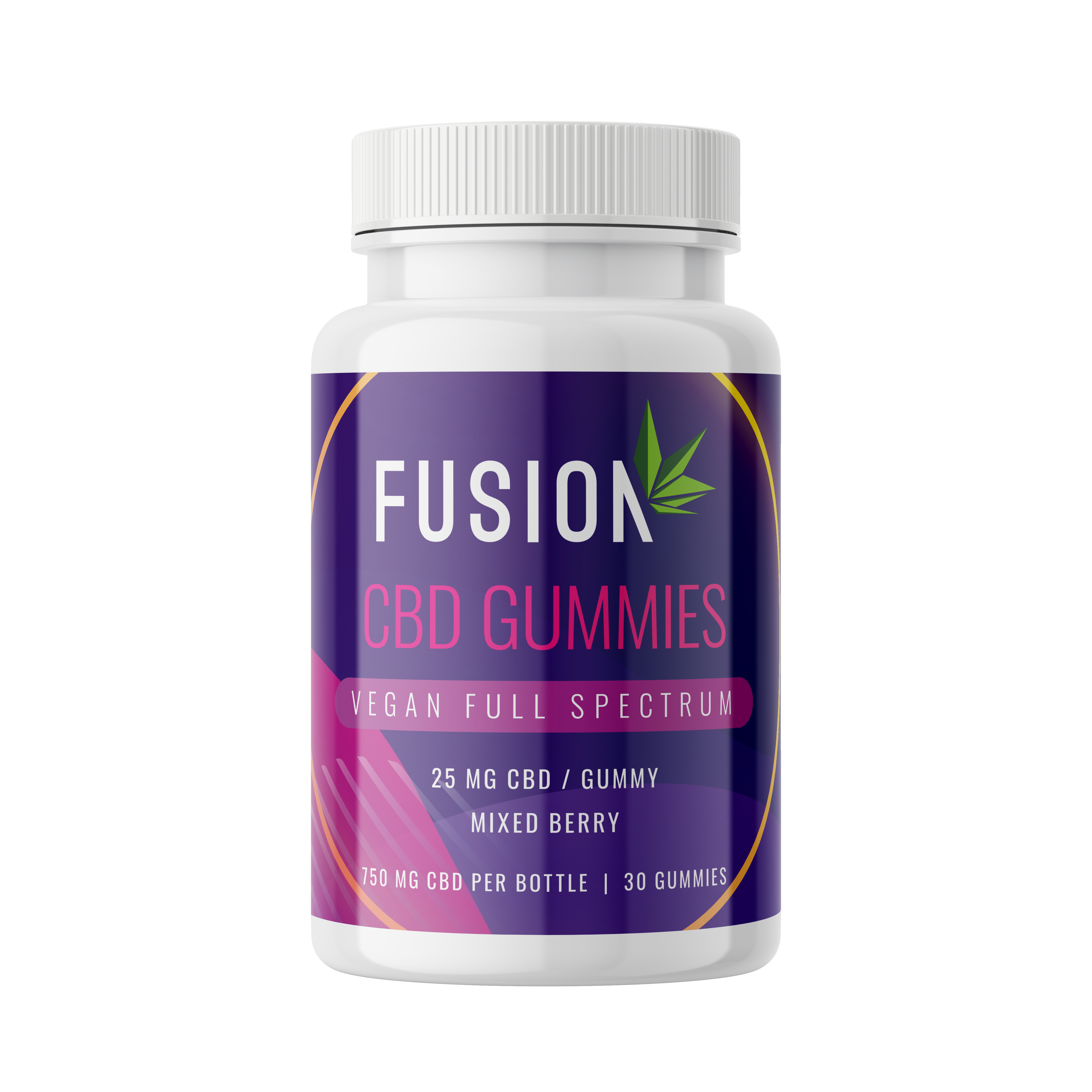News
Does CBD Make You Sleepy?
As CBD’s popularity grows, it’s important to understand the science behind this trending compound and how it may interact with your body. Among the possible benefits of CBD is improved sleep. However, some individuals are concerned that CBD may make them more tired during the day.
If you also have questions like: How does CBD really affect sleep? Does it make you sleepy or help you sleep better?
Then you’re in the right place. This guide explores the science behind CBD and its potential effects on sleep.
Check Out Fusion CBD Products

CBD GUMMIES – ELDERBERRY

SLEEP AND RECOVERY SOFTGELS

VEGAN FULL SPECTRUM CBD GUMMIES
What is CBD?
Cannabidiol (CBD) originates from the hemp plant and is one of over 120 cannabinoids. Unlike its famous cousin THC, CBD does not produce mind-altering or psychoactive effects. This means you can enjoy CBD’s potential benefits without feeling high or intoxicated.
How Does CBD Interact with the Human Body?
The human body has a complex endocannabinoid system (ECS), which regulates essential functions such as mood, appetite, pain, immune response, and sleep.
This intricate system consists of CB1 and CB2 receptors that interact with cannabinoids like CBD. What makes CBD special is that it can indirectly interact with these receptors, regulating various physiological functions.
This interaction can bring several benefits, such as reducing anxiety, relieving pain, and inducing calm and relaxation. But how does CBD impact our sleep? Let’s find out.
The Science of Sleep & CBD
CBD, or cannabidiol, is a compound that has gained attention for its potential to improve sleep quality. Although CBD’s impact on sleep is still being researched, some studies have suggested that it can regulate our sleep through our body’s endocannabinoid system.
The endocannabinoid system is closely tied to the hypothalamus, which oversees our sleep-wake cycle through our circadian rhythm. Therefore, CBD may improve our sleep quality by interacting with the same system in our body that influences our natural sleep patterns.
Does CBD Make You Feel Sleepy?
It’s not a straightforward “yes” or “no” answer regarding whether CBD causes sleepiness. Unlike THC, CBD does not make you sleepy but can regulate your sleep patterns.
In other words, CBD improves sleep quality and duration by addressing the underlying issues that can disrupt sleep, such as anxiety and pain. By targeting these factors, CBD can help promote a more restful and rejuvenating sleep experience.
Does CBD Make You Tired During the Day?
No. CBD won’t make you feel sleepy during the day. Some people think CBD can cause drowsiness, but that’s not the case.
Unlike THC, which can make you feel tired and intoxicated, CBD has a calming effect on the mind and can lower anxiety levels. Ultimately, this helps you focus and stay alert rather than inducing sleepiness. So, using CBD shouldn’t make you feel exhausted or interfere with your daily activities.
CBD as an Adaptogen
CBD can be thought of as an adaptogen that works in harmony with our body’s natural rhythms. This means that it can help you stay focused during the day when you need to concentrate and calm your mind at night for a more restful sleep.
However, it’s important to remember that everyone’s physiology is different, so CBD effects may vary from person to person. What works for one person may not work for another, and It’s always a good idea to consult with a healthcare professional before starting any new supplement regimen.
Can CBD Help With Sleep Disorders?
CBD has shown promise in helping people with various sleep disorders, such as insomnia, restless leg syndrome, and other conditions that can negatively impact sleep.
CBD affects the hypothalamus, which regulates stress levels to help people achieve better sleep. This is important because the hypothalamus maintains the body’s temperature and establishes sleep-wake cycles.
CBD for Insomnia
According to recent research, CBD may be more effective at reducing insomnia symptoms than Delta-9 THC, the main psychoactive component found in the cannabis plant. This means that CBD could be a more beneficial option for those struggling with insomnia, as it may provide relief without the psychoactive effects associated with THC.
CBD for Circadian Rhythm Disorders
CBD may help improve the sleep quality by allowing the body to go through its natural sleep stages, including REM sleep, without any disturbances. This benefit can be particularly helpful for individuals with circadian rhythm disorders, such as nurses who work in shifts.
CBD for RLS
According to preliminary research, CBD has the potential to help with Restless Leg Syndrome (RLS), which is a neurological disorder that can impact the quality and quantity of sleep negatively.
CBD for Chronic Pain
Anecdotal reports and preliminary research shows that CBD has promising pain-relief potential. Having adequate pain control is crucial to relaxing both body and mind without worrying about the addictive or toxic effects of other analgesic alternatives.
However, more research is needed to confirm CBD’s efficacy as a potential treatment method for various conditions.
Factors Influencing CBD’s Effects on Sleep
It’s important to note that CBD’s effects on sleep can vary depending on several factors, such as:
Dosage
Taking the proper dosage is critical to obtaining the maximum results. For instance, high dosages will make you feel more relaxed, while low doses will help you concentrate better.
Also, it’s important to note that genetic makeup, weight, and metabolism determine how your body responds to CBD’s effects. Ultimately individual variances are worth considering as what may work out optimally for one person may have adverse effects on another.
Timing
Timing is crucial when it comes to CBD’s effects on sleep. If taken in the evening or at bedtime, CBD may lead to a more relaxing sensation that aids in falling asleep.
However, taking it earlier in the day may result in an energized feeling. Therefore, it’s essential to carefully consider the timing of CBD consumption to achieve the desired effect on sleep.
Conclusion
CBD has shown promising effects in helping with some sleep disorders. And while it may not make you as sleepy as THC does, it can still positively impact sleep. This is done by addressing factors that contribute to sleep disturbances.
Although cannabidiol’s effects on sleep can vary among individuals and depend on various factors, its potential to improve sleep quality and reduce anxiety and pain makes it an appealing choice for people with sleep problems.
CBD And Sleep Frequently Asked Questions
Can CBD Help with Insomnia?
While more research is required, preliminary studies suggest that people with insomnia may experience benefits from using CBD products. By targeting issues like stress, anxiety, and pain that contribute to poor sleep quality, CBD could positively impact how much restful sleep a person gets at night.
How Long Does It Take for CBD to Work for Sleep?
The onset of CBD’s effects can vary depending on factors such as the method of consumption and individual biology. Generally speaking, though, tinctures and other sublingual forms will start working shortly afterward (within about half an hour) compared to other types like edibles or capsules, which might take closer to two hours.
Can I Take CBD with Other Sleep Aids?
It’s essential to consult with your healthcare provider before combining CBD with other sleep aids or medications. Some combinations may lead to unwanted side effects or interactions that could impact your health as well as the effectiveness of your treatment.
Are There Any Side Effects of Using CBD for Sleep?
CBD is generally well-tolerated and considered to be safe for most people. However, it is important to note that some people may experience mild side effects such as tiredness, dry mouth, or shifts in appetite. To ensure safety when consuming CBD, start with a lower dose and observe your body’s response.
